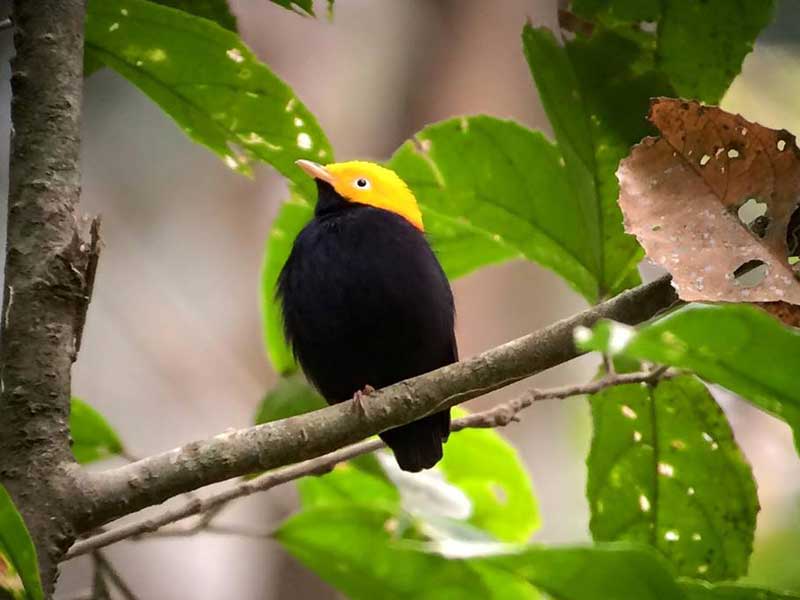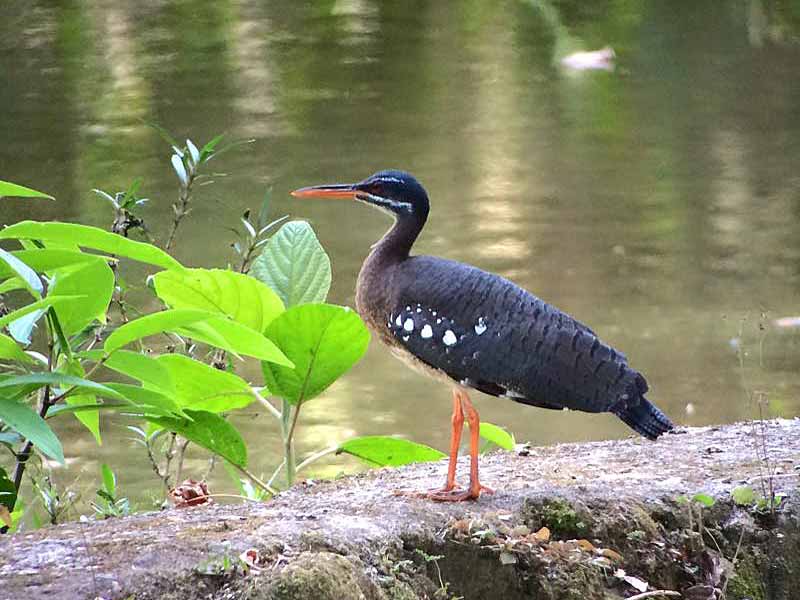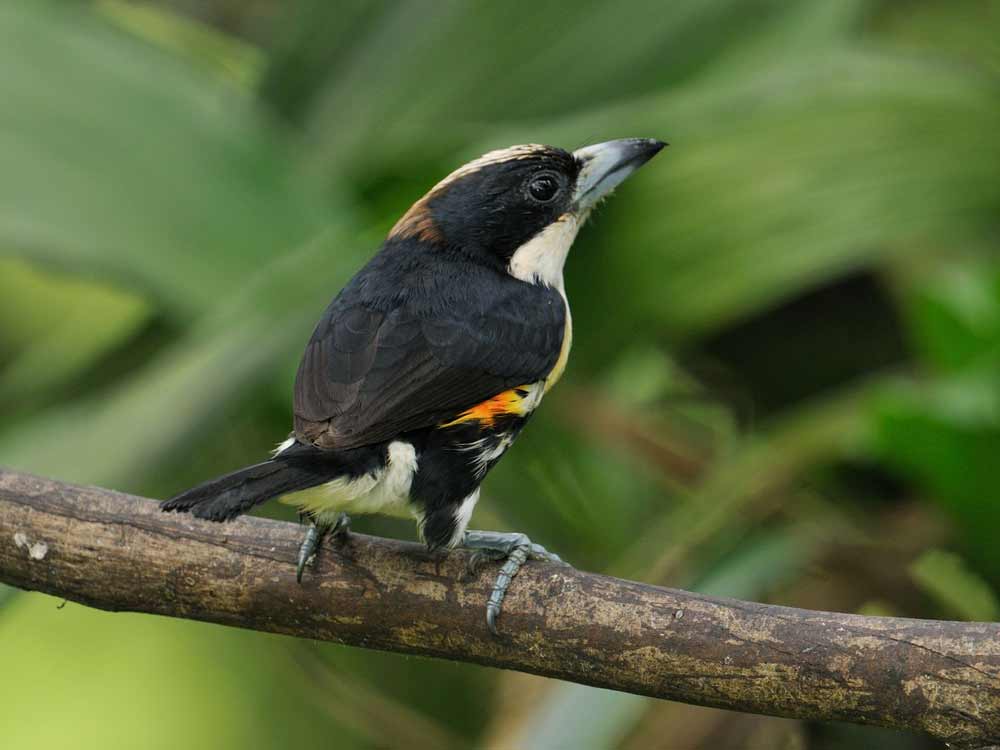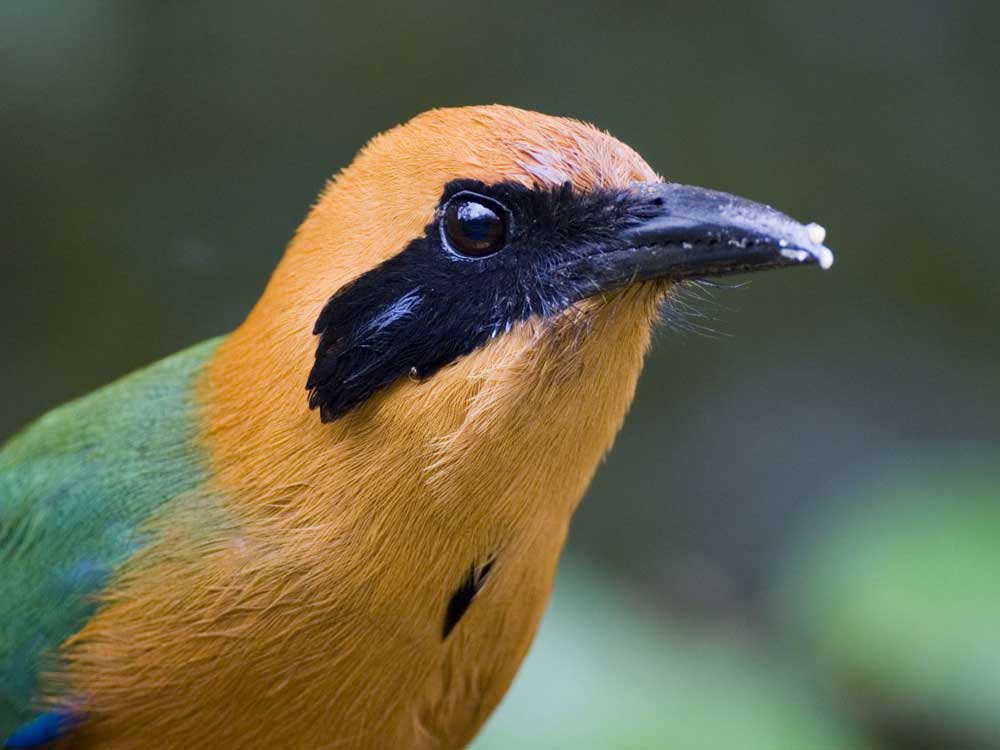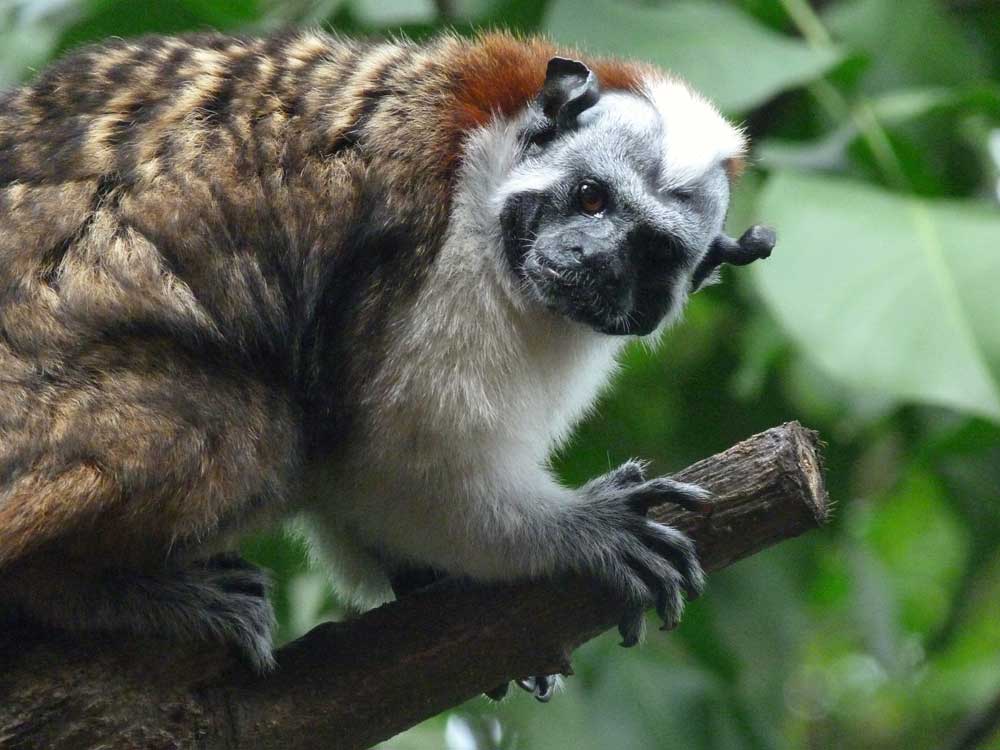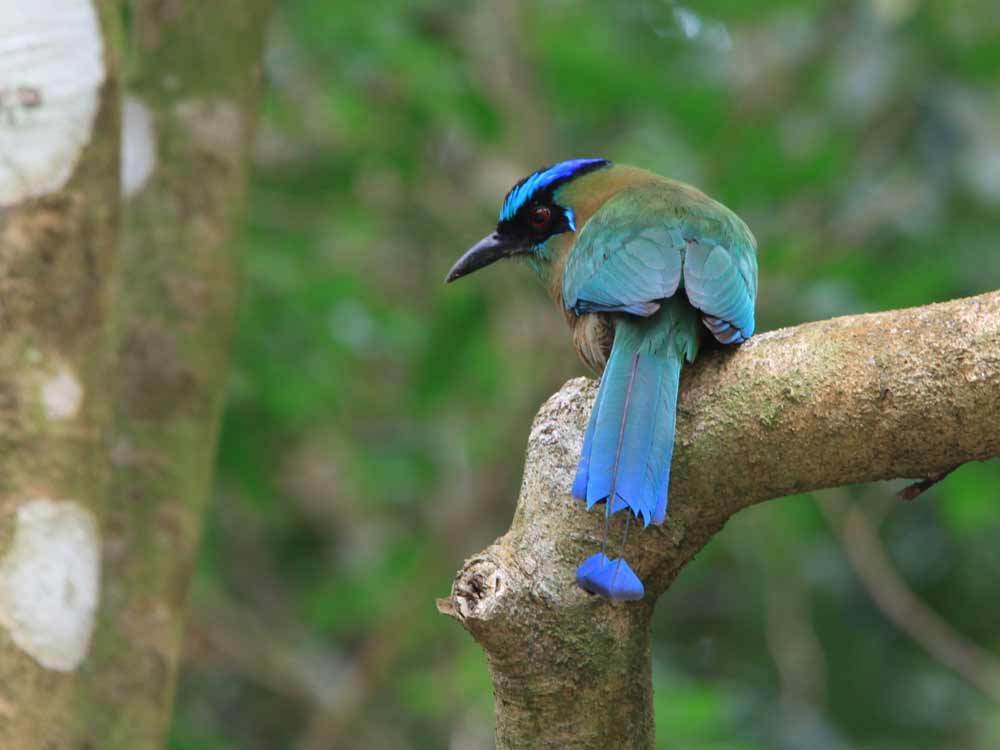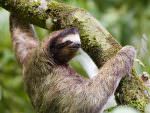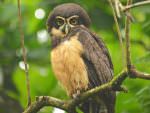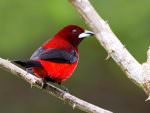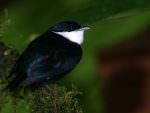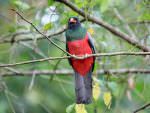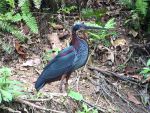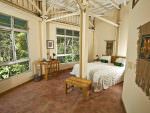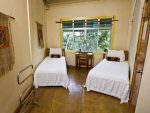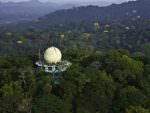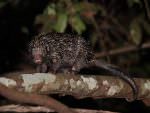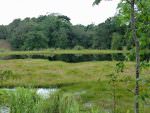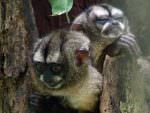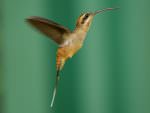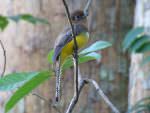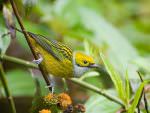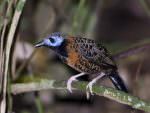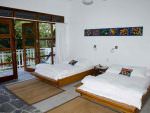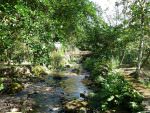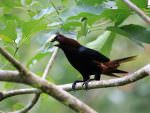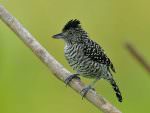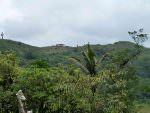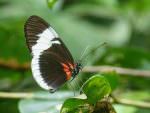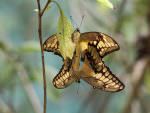Itinerary and price
Day 1: Flight to be organised by you
For help with your flight arrangements and to receive a no obligation quote, you can complete the enquiry form on our website or call 0800 280 8947 to speak to a flight advisor at StudentUniverse (in partnership with Gapyear.com), part of the Flight Centre Travel Group, a leading retailer of airfares and worldwide flights.
If you board a flight from the UK very early morning you may well arrive by the evening into Panama City.
On arrival at the airport you will be met by your driver who will transfer you to Canopy Tower, located at the top of Semaphore Hill in the rainforest of Soberanía National Park. As you arrive at Canopy Tower you will be enthralled by the hummingbirds dashing around the feeders at the entrance - commonly seen are Long-billed Hermit, White-necked Jacobin, Violet-bellied and Blue-chested Hummingbirds and White-vented Plumeleteer with an occasional Snowy-bellied Hummingbird making an appearance.
From the Tower's observation deck you can admire the view and scan across the rain forest canopy for a wide range of birds including Blue Cotinga, Mealy and Red-lored Parrots. From this excellent vantage point you see the majestic Centennial Bridge ("Bridge of the Americas") as well as ships transiting the Panama Canal. Dinner at Canopy Tower (subject to your arrival time)
Night at Canopy Tower
Day 2: Canopy Tower, Semaphore Hill Road and Ammo Dump Ponds
Meals: Breakfast, lunch and dinner
Your guide will be waiting for you at the Observation Deck for some early morning birding while you enjoy hot coffee, tea or orange juice. Some of the birds you are likely to see are Green and Red-legged Honeycreepers, Green Shrike-Vireo, Scaled Pigeon, Keel-billed Toucan, Collared Araçari, a variety of flycatchers and raptors sometimes including King Vulture and Ornate Hawk-Eagle. After breakfast you’ll start exploring Soberanía National Park by taking a pleasant walk down Semaphore Hill Road. This winding, shady paved road through the forest is bordered with wildflowers of many types. A little over a mile long it crosses a large creek about half-way down. The species list is extensive with forest interior birds as well as edge-dwellers. Olivaceous Flatbill, Plain Xenops, Lesser Greenlet, Black-breasted and White-whiskered Puffbirds, Fasciated and Western Slaty-Antshrikes are just a few of the species likely to be seen locally.
The Ammo Dump Ponds are located just past Gamboa on the way to Pipeline Road. It is the best place to see the elusive White-throated Crake and a host of other waterbirds. Least Grebes and Purple Gallinules are common and Rufescent Tiger-Heron and American Pygmy-Kingfisher are also resident. You can often find Greater Ani, Red-legged Honeycreeper, Whooping Motmot (a recent split from Blue-crowned) and you may be lucky enough to see a Capybara.
Night at Canopy Tower
Day 3: World Famous Pipeline Road (FULL DAY)
Meals: Breakfast, lunch and dinner
After breakfast you board the Birdmobile or the Rainfomobile, both are open-topped vehicles which take you to Pipeline Road, the best place in Central Panama to find forest birds and one of the premier birding spots in the world!
Eight species of wrens, five trogons, four puffbirds, three motmots, several tanagers, Great Jacamar, Common Potoo, Pheasant Cuckoo, Little Tinamou and many other birds have been recorded here, including the elusive Rufous-vented Ground-Cuckoo and the majestic Harpy Eagle! Harpy Eagle is difficult to see here and is best looked for with a stay at Canopy Camp. And if its 17 km are not enough, there are plenty of side trails, eleven creeks and rivers that can be followed into the forest. You will also search for Streak-chested Antpitta and Black-faced Antthrush. Army ant swarms are found frequently, attended by a host of birds including, Bicolored, Ocellated and Spotted antbirds. Golden-collared, Red-capped and Blue-crowned manakins are always appreciated by birders. Pipeline Road is also a great place for raptors. Three forest-falcons are resident and Tiny Hawk, Semiplumbeous Hawk, Ornate and Black Hawk-Eagles may be observed soaring overhead. In the canopy Purple-throated Fruitcrow, Black-crowned and Masked Tityras, Cinnamon and Crimson-crested woodpeckers, Scarlet-rumped Cacique, Red-lored and Brown-hooded Parrots, Collard Araçari, Black-mandibled and Keel-billed toucans, Black-striped, Northern Barred and Plain Brown Woodcreepers may be found to name a few! We will enjoy a picnic lunch in the forest and continue birding for the rest of the day. Dinner at CANOPY TOWER.
Night at Canopy Tower
Day 4: Pipeline Road and Panama Rainforest Discovery Centre
Meals: Breakfast, lunch and dinner
Back to Pipeline Road this morning, concentrating around the entrance where you will look for various trogons including Violaceous, Greater Ani, Grey-necked Wood-Rail, Yellow-tailed Oriole, Masked Tityra, Rosy Thrush-Tanager, Plain Wren, Streaked Flycatcher, Red-throated Ant-Tanager, Squirrel Cuckoo, Grey-headed Chachalaca, Southern Bentbill, Forest Elaenia, Panama Flycatcher, Blue Ground-Dove and Little Tinamou. You may see Western Night Monkey in their day-time roost while you are looking for the rather gorgeous Golden-collared Manakin. Lunch will be back at Canopy Tower.
In the afternoon you will visit the Panamá Rainforest Discovery Centre, an ecotourism and environmental education facility created and administered by Fundacion Avifauna Eugene Eisenmann. Located off Pipeline Road adjacent to Soberanía National Park, the area contains several attractions, the best of which is a 100-foot-high observation tower with four rest platforms, each stopping at a different level of the rainforest. The view from the top is incredible! Scan for raptors like Double-toothed Kite and Semiplumbeous Hawk then explore the 1.1 kilometre circuit of well-maintained forest trails. Dinner will be at Canopy Tower.
Night at Canopy Tower
Day 5: Metropolitan Natural Park (25 mins. from CT) and Summit Ponds and Old Gamboa Road
Meals: Breakfast, lunch and dinner
After breakfast this morning its time to explore "Metro Park". Encompassing 265 hectares it is the only large forested park within the metropolitan capital in Latin America. Most importantly, it protects 192 hectares of Dry Lowland Pacific Forest, yielding bird species that are difficult to find elsewhere. The beautiful Rosy Thrush-Tanager is here, as is the striking Lance-tailed Manakin. It's also a good place to find Southern Bentbill, Rufous-and-white, Plan and Rufous-breasted Wrens, Dusky Antbird, Crimson-crested, Lineated and Red-crowned Woodpeckers. Red-legged and Green Honeycreepers, Whooping Motmot (recently split from Blue-crowned), Keel-billed Toucan, Collared Aracari and the endemic Yellow-green Tyrannulet are resident along with Forest and Greenish Elaenias. In October there is a good vantage point to witness the mass migration of thousands of Turkey Vultures, Swainson's and Broad-winged Hawks as they fly over Panama City towards their wintering grounds in South America. Lunch is back at Canopy Tower.
In the afternoon Old Gamboa Road and the associated ponds at Summit are great places to find Canal Zone birds. At Summit Ponds scan for residents such as Green, Striated, Capped and Boat-billed Herons as well as Green, Ringed, Amazon, Green-and-rufous (rare) and American Pygmy Kingfishers. Look for Rusty-margined and Streaked Flycatchers, Mangrove Swallow, Bat Falcon, Cocoa Woodcreeper, Lineated and Crimson-crested Woodpeckers. Beyond the two ponds you'll be on Old Gamboa Road, one of the birdiest spots around as it passes through varied habitat with plenty of specialties, including Blue Ground-Dove, Great Antshrike, Jet Antbird, Black-tailed and Royal Flycatchers, Lance-tailed and Golden-collared Manakins as well as the delightful Rosy Thrush-Tanager. Spectacled Owl is a real possibility, too, as the guides know where these birds often roost. Dinner at Canopy Tower
Night at Canopy Tower
Day 6: Cerro Azul & Cerro Jefe (1 hour from CT) FULL DAY
Meals: Breakfast, lunch and dinner
After breakfast we depart toward the hills above Tocumen where a completely different climate and, more importantly, a different suite of birds awaits. The weather will be much cooler and more breezy as we descend the foothills of the San Blas Mountains toward Cerro Azul (2,500 ft.) and Cerro Jefe (3,300 ft.), named after the two tall peaks in the area. Major targets in these cloud-forested hills with peaks of elfin forest will include Yellow-eared Toucanet, Black-and-white Hawk-Eagle, Ornate Hawk-Eagle, Spot-crowned Barbet, Black-eared Wood-Quail, and a nice mix of tanagers, including Silver-throated, Emerald, Speckled, Rufous-winged, Bay-headed, Black-and-yellow, Golden-hooded and Hepatic.
You will also search for the specialty hummers, including Rufous-crested Coquette, White-tipped Sicklebill, Bronze-tailed Plumeleteer, Green Thorntail, as well as Violet-capped, Violet-headed & Snowy-bellied hummingbirds! We should also find the endemic Stripe-cheeked Woodpecker, along with Lineated Woodpecker, Black-striped and Spotted Woodcreepers, Red-capped and White-ruffed Manakins, Russet Antshrike, and White-vented and Tawny-capped Euphonias. We have lunch at a picturesque residence overlooking miles of Chagres National Park's impressive rainforest! Later, while enjoying dinner at the CANOPY TOWER, we all will reminisce on the day's glorious birds!
Night at Canopy Tower
Day 7: Plantation Trail and Chagres River/Gamboa Feeders
Meals: Breakfast, lunch and dinner
After breakfast, a short ride takes you to the bottom of Semaphore Hill and on to Plantation Trail, one of the premier birding areas. This easy trail passes through mature rainforest and follows a small creek (Rio Chico Masambi) which is a reliable place for Golden-crowned Spadebill. Black-chested Jays are often found near the parking area at the entrance. Other birds to look for along the trail include Ocellated, Bicoloured, Chestnut-backed, White-bellied and Spotted Antbirds, Broad-billed and Whooping Motmots, trogons, White-whiskered Puffbird, hummingbirds (Blue-chested, White-necked Jacobin and others).
After lunch a short drive takes you to the Canopy B & B, in the picturesque village of Gamboa, to check out the bird feeders. Here you are likely to see Red-legged, Shining and Green Honeycreepers, Lemon-rumped, Crimson-backed and Blue-grey Tanagers, Thick-billed Euphonia, Yellow-bellied and Variable Seedeaters, Whooping Motmot and Grey-headed Chachalaca. Beneath the feeders there could be some foraging Central American Agoutis
Next, it's off to Chagres River, the main tributary for the Panama Canal. Birding along the river banks and the forest edge of Gamboa Resort can be spectacular as you search for Amazon, Green and American Pygmy Kingfishers, as well as Whooping Motmot and Cinnamon Woodpecker. There's a good chance of Grey-necked Wood-Rail, Cocoi, Green and Striated Herons, Wattled Jacana, Pied-billed Grebe, Anhinga, Royal and Sandwich Terns, Brown Pelican, Neotropic Cormorant, Tricoloured and Little Blue Herons, Rufescent Tiger-Heron, Mangrove Swallow and Black-chested Jay. Embera Indians are often out on their fishing canoes.
Night at Canopy Tower
Day 8: Canopy Tower to Canopy Lodge
Meals: Breakfast, lunch and dinner
No need to wake up early today. After a leisurely breakfast you may have one last watch from the Observation Deck before setting off with your driver on the two-hour drive to Canopy Lodge, located in the mountains at El Valle de Antón and nestled against the cloud forests of Cerro Gaital Natural Monument. At 2,400-feet, you will immediately notice the cooler temperature.
We will spend seven nights at this lovely village, nestled in the crater of a long dormant volcano that last erupted 5 million years ago. The resultant scenery is quite unique: a steep valley surrounded by jagged peaks and filled with flowers, streams and verdant forests. We arrive in time for lunch. Our home for the next seven nights will be the Canopy Lodge, sister lodge of the Canopy Tower, a charming eco-lodge built next to a bubbling mountain stream and adjacent to the protected area of Cerro Gaital Natural Monument.
A member of our staff will greet you as you arrive at the Lodge, and you will be provided with an orientation on the use of the facilities. At this time we will answer any questions you may have. As your luggage is taken to your room, you may wish to visit the dining/lounge area and enjoy a refreshing drink - you'll certainly want to scan the bird feeders and look around the lodge grounds. Many species are likely - Crimson-backed, Blue-grey, White-lined, Lemon-rumped, Dusky-faced and Plain-coloured Tanagers, along with Red-crowned Ant-Tanager are all seen locally. Rufous-crested Coquette and several other species of hummingbird regularly visit the garden. Lunch and Dinner at CANOPY LODGE.
Night at Canopy Lodge
Day 9: La Mesa Road - Cara Iguana
Meals: Breakfast, lunch and dinner
After breakfast, you continue the quest for more lifers with a trip to La Mesa Road. This area, a visually pleasing blend of secondary forest, scrubby pastures, overgrown fincas (farms) and grassy borders, is home to many of the area’s specialties. Look for such great birds as Spot-crowned Barbet, Cinnamon Becard, Scarlet-thighed Dacnis, Silver-throated, Golden-hooded, Tawny-crested and Bay-headed Tanagers, Spot-crowned Antvireo and Spotted Woodcreeper; hummingbirds include White-tipped Sicklebill, Rufous-crested Coquette, Violet-crowned Woodnymph and Black-throated Mango. Also resident are Blue-throated Toucanet, Bran-coloured Flycatcher, Scale-crested Pygmy-Tyrant and Orange-bellied Trogon. Lunch will be served back at Canopy Lodge.
After lunch you will explore the Cara Iguana Trail for outstanding foothill birding in some of the last remaining examples of quality Dry Pacific Forest. Specialties you can hope for in this bird-rich habitat are Lesser Elaenia, Yellow-olive and Panama Flycatchers, Pale-eyed Pygmy-Tyrant, Yellow-bellied Elaenia, Lance-tailed Manakin, Rufous-breasted and Rufous-and-white Wrens, Rosy Thrush-Tanager, Tody and Whooping Motmots and Long-billed Gnatwren. Other residents are Striped Cuckoo, Little Tinamou, Common Potoo, Dusky and White-bellied Antbirds, Barred Antshrike, White-winged Becard, Tropical Screech-Owl and Bat Falcon. Hummingbirds to watch for include Garden Emerald, Long-billed Starthroat and White-vented Plumeleteer.
Night at Canopy Lodge
Day 10: El Chiru/Juan Hombron Beach/Playa Santa Clara
Meals: Breakfast, packed lunch and dinner
After breakfast and a downhill drive there a full day of birding in more Dry Pacific Forest with a wonderful suite of birds. Amongst those to search for are Yellow-headed Caracara, Roadside, Grey and Short-tailed Hawks, Peregrine and Aplomado (rare) Falcons, White-tailed Kite and Ferruginous Pygmy-Owl as well as Pale-eyed Pygmy-Tyrant, Golden-fronted Greenlet, Grassland Yellow-Finch, Rufous-browed Peppershrike, Brown-throated Parakeet, Blue Ground-Dove, Crested Bobwhite, Red-breasted Blackbird, Fork-tailed Flycatcher and Crested Oropendola. There's a spot along the way where Common Potoo is sometimes found. Hummingbirds to be on the watch for in this unique scrubby area are Garden Emerald and the endemic Veraguan Mango. Enjoy a picnic lunch at the popular Santa Clara beach and hope to spot Sapphire-throated Hummingbird working the coastal shrubbery. You may want to bring your swimsuit; the waters of the Pacific Ocean are nice and warm. Birds around the coast could include Least, Western and Spotted Sandpipers, Sanderling, Blue-footed and Brown Boobies, Sandwich, Royal and Elegant Terns plus Franklin's and Laughing Gulls. Hoped-for species at Juan Hombron rice fields are Lesser Yellow-headed Vulture, Crested Caracara, Grey-necked Wood-Rail, Pale-eyed Pygmy-Tyrant, Northern Scrub-Flycatcher, Southern Lapwing, Great Blue Heron, Tricoloured Heron, Straight-billed Woodcreeper, Pale-breasted Spinetail, Plain-breasted Ground-Dove, Mouse-coloured Tyrannulet, Pearl Kite, Savanna and Common Black Hawks.
Night at Canopy Lodge
Day 11: Altos del Maria FULL DAY
Meals: Breakfast, packed lunch and dinner
After an early breakfast you'll drive from El Valle in air conditioned 4x4 SUVs back along the Pan-American Highway and up to the mountains. As the sun rises over the highlands ahead of you, the vast valleys and spectacular mountains with towering cliffs come into view. Set in the mountains on the continental divide east of El Valle, Altos del Maria provides a fabulous location for birding. Ascending an excellent paved road along a ridge you will reach your destination; an extensive area of cloud forest at 3,600 ft. harbouring an exciting variety of highland forest birds. Some of the characteristic species of this cloud forest include Black-crowned Antpitta, Black-headed Saltator, White Hawk, Barred Forest-Falcon, Orange-bellied Trogon, Spotted Woodcreeper, Red-faced Spinetail, Spotted Barbtail, Russet and Great Antshrikes. Possible hummingbirds are Band-tailed Barbthroat, the exquisite Snowcap, Garden and White-tailed Emeralds, Purple-throated Mountain-Gem, White-tipped Sicklebill and Bronze-tailed Plumeleteer. After a picnic lunch in the field, you descend into a valley and climb to the ridge on the opposite side. Reaching some large swathes of mature humid forest along this ridge, explore trails and roadside spots in search of even more forest birds. Around mid-afternoon it will be time to head back into El Valle for some relaxation time prior to dinner.
Night at Canopy Lodge
Day 12: Cerro Gaital - Las Minas Trail
Meals: Breakfast, lunch and dinner
Today after breakfast you'll go to Cerro Gaital (3,500 ft), a steep, mist-shrouded, forested mountain which you can see from the lodge. It takes its name from Cerro Gaital Natural Monument, which protects more than 335 hectares of mature cloud forest and offers sightings of Black Guan (difficult), Blue-throated Toucanet, Orange-bellied Trogon, Spotted Barbtail, Black-headed Antthrush, Northern Schiffornis and many others. Scaled Antpitta and Rufous-vented Ground-Cuckoo have been recorded here too. Lunch will be back at Canopy Lodge
After lunch the birds along Las Minas Trail await detection, an excellent place for a wide variety of species. The road follows the ridge line, with sweeping vistas of forested mountains, dotted with grasslands and small fincas (farms). The views from here are fantastic; on a clear day both the Atlantic and Pacific Oceans can be seen from near the summit. Specialties of the region include Black-and-yellow, Bay-headed and Emerald Tanagers, Tawny-capped Euphonia, Scale-crested Pygmy-Tyrant, Spot-crowned Antvireo, Grey-headed Kite, Barred Hawk, Bat Falcon, Ornate Hawk-Eagle, Swallow-tailed Kite, Bronze-tailed Plumeleteer, White-tipped Sicklebill, Green Thorntail, Orange-bellied and Black-throated Trogons.
Night at Canopy Lodge
Day 13: Rio Indio and Jordanal
Meals: Breakfast, packed lunch and dinner
Depart after breakfast for a fun-filled day of Caribbean Slope birding! These fine forested areas are not well-birded - by anybody - so who knows what you could find! First stop is Rio Indio, a great place to try for the area's specialties: Sulphur-rumped Tanager, Spot-crowned Barbet and Barred Puffbird. Other species to strive for are Crested Oropendola, White-vented Euphonia, Buff-rumped Warbler, Long-tailed Tyrant and raptors such as White and Grey Hawks and Black Hawk-Eagle, as well as White-collared and Band-rumped Swifts. Hummingbirds might include Green, Long-billed and Rufous-breasted Hermits and White-necked Jacobin. Search, too, for Lineated and Red-crowned Woodpeckers, Jet and Dusky Antbirds, Lesser and Yellow-bellied Elaenias, Tropical Pewee, Dusky, Piratic and Grey-capped Flycatchers, Cinnamon and White-winged Becards, Black-chested Jay, Bay Wren, along with Tawny-capped Euphonia, Emerald, Bay-headed and Golden-hooded Tanagers. If that's not enough, you may see Shining Honeycreeper, finches such as Yellow-bellied Seedeater, Thick-billed Seed-Finch, Black-striped Sparrow, as well as Streaked and Buff-breasted Saltators! After a picnic lunch at a thatched-roof shelter on the Jordanal River, bird your way back to Canopy Lodge for a relaxing afternoon - but you can't really relax until you've checked the feeders in the garden.
Night at Canopy Lodge
Day 14: Watecress Trail and Valle Chiquito
Meals: Breakfast, lunch and dinner
After breakfast it's off to Watercress Trail, named after the herb which is commercially grown in the terraced creek near the entrance. It's an easy trail traversing good secondary forest framed by the picturesque forested mountains of Cerro Gaital Natural Monument. Good birds here are Rosy Thrush-Tanager, Black-headed Saltator, Great Antshrike, White-ruffed Manakin, White-thighed Swallow, White-bellied Antbird and Tody Motmot; hummingbirds such as Long-billed Starthroat, Rufous-crested Coquette and, if the Inga is in bloom, scan for Snowcap. You will also listen for the frog-like Purplish-backed Quail-Dove. Lunch at Canopy Lodge
This afternoon's destination is Valle Chiquito. The valley is accessible via a newly-paved road passing through forested woodlands crossed by two rivers. At Rio de Jesus you'll search for Green Kingfisher and listen for Sepia-capped Flycatcher. There's a nice colony of Chestnut-headed Oropendolas here in a Cecropia tree and you may find Tody Motmot, Yellow-throated Vireo, Yellow-backed Oriole, White-bellied Antbird, Grey-chested Dove, Yellow-billed Cacique, Zone-tailed and Grey Hawks, Black Hawk-Eagle and Lance-tailed Manakin among many species frequently seen locally.
Night at Canopy Lodge
Day 15: Canopy Lodge – Panama City
Meals: Breakfast and lunch
After a leisurely breakfast and time to explore the grounds for some last-minute-birding around the Lodge gardens, you'll be driven (approx. 3 hours) back to Panamá City to catch your return flights home.
Tour ends
Tour extensions available so please contact us for details. You could continue with some unique island birdwatching at the very relaxing Tranquilo Bay, Isla Bastimentos, Bocas del Toro. From here as your base you can see Snowy Continga, Red-billed Tropicbird, Brown Booby, Nicaraguan Seed-Finch and so much more and enjoy sea kayaking, snorkelling over local coral reefs and views from the canopy tower across the Caribbean Sea.
Note: The order of visits and places visited may vary depending on weather and other factors.
Price per person excluding local taxes (please enquire for current rates including local taxes):
Green Season (16 April - 15 Dec 2019) $3350
High Season (16 Dec 2019- 15 April 2020) $5350
Green Season (16 April - Dec 2020) $3350
Supplement surcharge for stays from 20 Dec - 5 Jan inclusive - please enquire
No single room supplement, but single rooms have a shared bathroom at Canopy Tower
Price includes:
Pre-travel information
All land transport
Accommodation in single/twin/double room
All meals and non-alcoholic beverages (except wine served with dinner which is included) from dinner on Day 1 to lunch on Day 15.
Services of an experienced bird guide for two outings each day or a full day excursion (max. group size of 8)
Entrance fee to National Park
Taxes and internet service
Price excludes:
Local taxes - please ask for details
Fights and travel insurance
Alcoholic drinks (except for wine served with meals which is included)
Entrance fee to Miraflores Exhibition
Extra excursions (available for supplement)
Tips, laundry, phone calls and anything else not listed in the inclusions
Extra supplement if you wish to have a private bird guide of $150 per day
